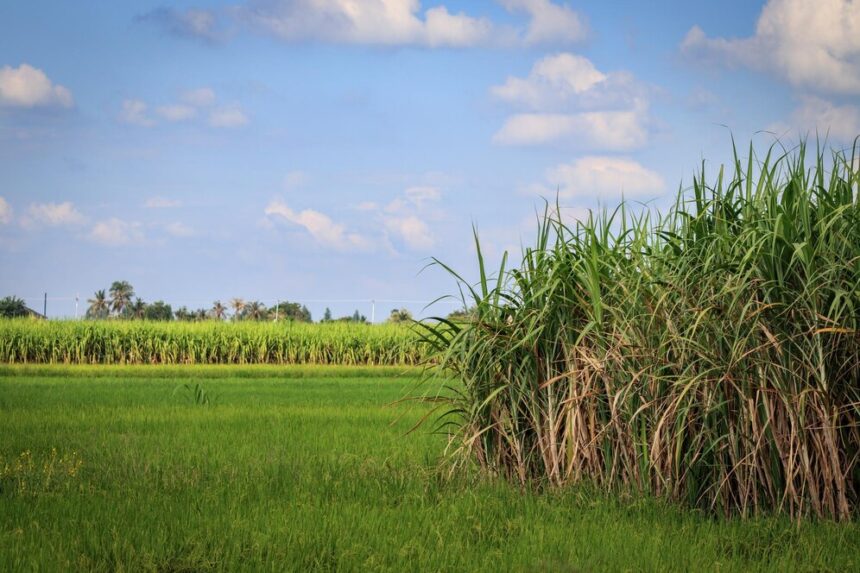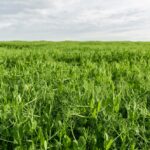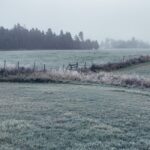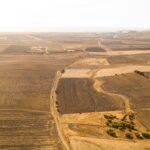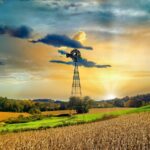Sugarcane farming is a vital part of South Africa’s agricultural economy, particularly in KwaZulu-Natal, Mpumalanga, and the Eastern Cape. The crop provides raw materials for sugar production and supports thousands of livelihoods in rural communities. However, the cost of establishing and maintaining sugarcane farms can be high, especially with the recent rise in input prices. Here’s a breakdown of the typical sugarcane farming costs per hectare in South Africa.
1. Land Preparation
Preparing the land is the first and one of the most critical steps in sugarcane farming. This process involves ploughing, harrowing, levelling, and ridging.
- Ploughing and harrowing: R6,000 – R8,000
- Ripping and ridging: R2,000 – R4,000
- Herbicide application (pre-plant): R1,000 – R1,500
- Total land preparation cost: R9,000 – R13,500
2. Planting Costs
Planting sugarcane includes the purchase of seed cane and the labour required for planting.
- Seed cane: R10,000 – R14,000
- Labour for planting: R2,500 – R4,000
- Fertiliser at planting: R2,000 – R3,500
- Total planting cost: R14,500 – R21,500
3. Fertilisation and Weed Control
Maintaining soil fertility and controlling weeds throughout the growing season is essential for a good yield.
- Topdressing fertiliser (2–3 applications/year): R4,000 – R6,000
- Herbicide (post-emergence): R1,500 – R2,500
- Labour for application: R1,000 – R2,000
- Total fertilisation and weed control cost: R6,500 – R10,500
4. Irrigation (if applicable)
In irrigated areas, water management becomes an additional expense.
- Water usage (where irrigation is necessary): R2,000 – R5,000
- Irrigation maintenance: R1,000 – R2,000
- Total irrigation cost: R3,000 – R7,000
5. Pest and Disease Control
Pests like the stalk borer and diseases such as smut or mosaic virus can significantly impact yields.
- Pesticides and disease control: R1,000 – R2,000
- Monitoring and scouting: R500 – R1,000
- Total pest and disease control cost: R1,500 – R3,000
6. Labour and General Maintenance
Ongoing labour is required for weeding, field inspections, and other maintenance tasks.
- Field labour (weeding, maintenance): R3,000 – R5,000
- Management and supervision: R1,000 – R2,000
- Total labour and maintenance: R4,000 – R7,000
7. Harvesting and Transport
Harvesting is one of the most significant costs, particularly when transporting cane to the nearest mill.
- Harvesting labour/machinery: R6,000 – R10,000
- Transport to mill: R3,000 – R6,000
- Total harvesting and transport cost: R9,000 – R16,000
Total Estimated Cost per Hectare:
- Dryland (rain-fed areas): R44,500 – R71,500
- Irrigated: R47,500 – R78,500
Factors Influencing Cost Variation
- Location – Proximity to mills and whether the area is irrigated.
- Farming scale – Larger farms often benefit from economies of scale.
- Mechanisation – Using machinery reduces labour costs but increases capital expenses.
- Input prices – Prices of fertilisers, fuel, and chemicals are highly volatile.
Sugarcane farming in South Africa can be profitable, especially when high yields and good sucrose content are achieved. However, it requires significant upfront investment and careful management of inputs. Farmers are encouraged to work with agricultural extension officers and co-operatives to optimise their production systems and manage costs effectively.
Join 'Farmers Mag' WhatsApp Channel
Get the latest Farming news and tips delivered straight to your WhatsApp
CLICK HERE TO JOIN
